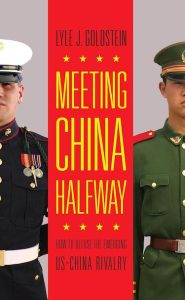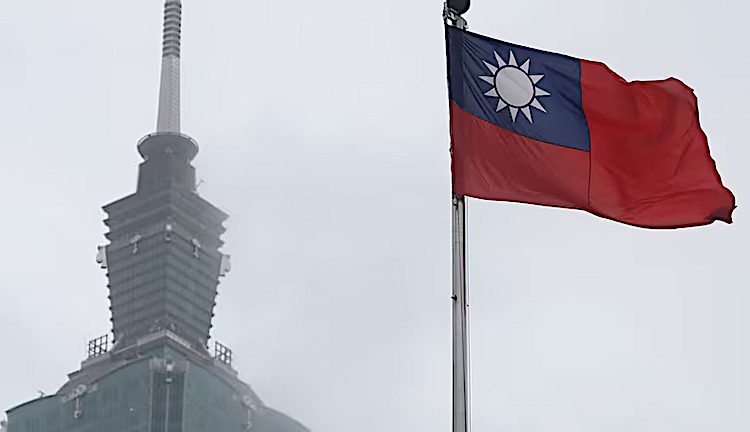By Jonathan Power
LUND, Sweden | 10 January 2024 (IDN) — Is what you see what you’ll get? President Xi Jinping of China is poking the US in the eye again. China, he suggests, is all set to wrest Taiwan back into the “China fold”. Xi appears far more determined than his predecessors to try to do this. Yet even he is cautious. He doesn’t threaten immediate military action and he sets no timetable for himself.
So, given the breathing space, the West has the formidable job of persuading him this is not a good idea. Above all more arms- or promises of arms-are not needed, especially so when Taiwan is gearing up for the ballot box in the election on January 13. A vast majority of Taiwanese want the ballot not the bullet as a means of keeping the mainland at bay.
Beijing has over a thousand rockets aimed at Taiwan. The US supplies arms aplenty to Taiwan—some of which, provocatively, need American cooperation and participation to be fired. Despite that China is arguably capable of overwhelming the island’s defences.
In reality, both sides need each other. Taiwan wouldn’t be so comfortably off if it didn’t have the Chinese market for its huge investments, a home for factories churning out the latest products designed by the highly skilled Taiwanese inventors and engineers and until, relatively recently, legions of Chinese tourists from the mainland pouring in, not least to look at the old Chinese artifacts that Mao’s Cultural Revolution destroyed at home but have been preserved in Taiwan.
China would not have done so well over the last two decades if it hadn’t had this Taiwanese input. Indeed, one could argue that it was the most important single ingredient in China’s technological success. Why should China, if it is acting in its own long-term interests want to undermine the benign political and socio-economic atmosphere that enables Taiwan industry and its tourist businesses to keep pushing ahead?
For years, US strategists have been saying this is the world’s most dangerous flashpoint, one that could even lead to a nuclear war with China. But what would be the point of destroying all that in war?
 When it comes down to it both the leading two Taiwanese political parties in practice if not in rhetoric are pro the status quo with one party leaning more towards China and one party leaning away towards independence But once in power, as both have been at one time or another, they soften their leanings, knowing that most of the electorate don’t want either independence nor incorporation into mainland China. They are a people of the status quo.
When it comes down to it both the leading two Taiwanese political parties in practice if not in rhetoric are pro the status quo with one party leaning more towards China and one party leaning away towards independence But once in power, as both have been at one time or another, they soften their leanings, knowing that most of the electorate don’t want either independence nor incorporation into mainland China. They are a people of the status quo.
Xi’s intention in his latest speech was to underline that China is the senior partner but at the same time to emphasise it wants re-unification to happen peacefully, but to warn if this does not happen war may be the result of Taiwan’s intransigence.
What can be done to make resolving the dispute easier?
China, as Lyle Goldstein writes in his book “Meeting China Halfway”, should be encouraged by the US agree to initiate further military confidence-building measures without any political preconditions. If the US significantly reduced the planned redeployment this year of 4,000 marines to its base in Guam, which China considers to be another hostile move, China could well agree to start talking.
Second, China should remove its short-range missiles from within a radius of 1000 kilometres from Taiwan. At present, in a first strike, they could knock out Taiwan’s air-force and navy. Admittedly, the Chinese weapons could be quickly moved back, but it would show goodwill and build confidence both between Taiwan and China and the US and China.
Third, China should institutionalize a system for allowing more leeway in allowing Taiwan to become a member of international entities like the World Health Organisation.
For its part the US should halt the sale of new weapons’ systems, indeed all arms transfers, as it once promised. The idea that the US maintains arms sales to an island off the coast of a nuclear-armed rising power is absurd. There never can be mutual deterrence. The arms are symbolic, but profoundly irritating to Beijing.
If these moves are made, then China can be asked to renounce the use of force as a preliminary to negotiations leading to a peace treaty in which full autonomy is given to Taiwan within a Greater China. However, if re-unification ever comes it will have to be on better terms than Hong Kong received and the Taiwanese, in a stronger negotiating position than Hong Kong ever was, rightly will only allow it when they see a good measure of democracy and human rights observance on the mainland.
The present American-led pessimism about the future of Taiwan is going nowhere, except to more confrontation. Whoever wins the election on January 13, will have to grapple with both giants. [IDN-InDepthNews]
Copyright Jonathan Power
Visit: www.jonathanpowerjournalist.com
Photo: A Taiwanese national flag flutters near the Taipei 101 building on National Dr. Sun Yat-Sen Memorial Hall in Taipei. Source: Focus Online.
IDN is the flagship agency of the Non-profit International Press Syndicate.


